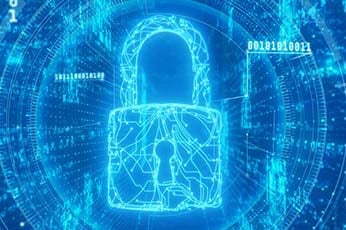Cyber security is a discipline within the information technology field that involves safeguarding data, networks and computer systems from cyberattacks like data breaches or malware spread by malicious hackers. The question “what is cyber security“ has considerable depth and breadth, encompassing everything from installing antivirus software on your home computer and watching out for suspicious, malware-infected emails, to protecting vast data systems containing sensitive information like payment profiles or health information.
If you’re wondering how to get into cyber security, you may have already heard about the projected growth in employment for this occupation. The Bureau of Labor Statistics (BLS) projects employment of information security analysts to grow 32% from 2022 to 2032, much faster than the average for all occupations, with about 16,800 job openings each year, on average, during this period.1 This growth is projected on a national level and local growth will vary by location. This projection is not specific to DeVry University students or graduates and may include earners at all stages of their careers, not just entry level.
The BLS attributes this strong projected job growth to several factors:





